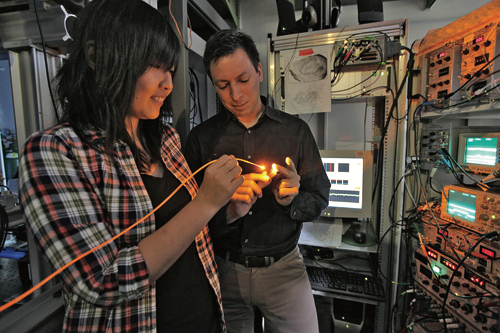Researchers at Columbia’s Zuckerman Institute have received more than $25 million in grants from the National Institutes of Health’s BRAIN Initiative in recent months. One such award, for $15.3 million, will enable a team of Columbia neuroscientists, data scientists, and engineers to address one of biology’s most fundamental questions: how does the brain tell the body to move?
“Our ultimate goal is to create a functional blueprint — a map — of all the brain’s connections that together drive movement,” says Thomas M. Jessell, co-director of the Zuckerman Institute, who, with Columbia neuroscientist Rui Costa, is co-leader of the $15.3 million project. “With the BRAIN Initiative’s enthusiastic support for this first-of-its-kind team approach, we have the means to gain insight into one of the most complex neuroscience questions of our time.”
Jessell and Costa’s grant is one of only five awards to US universities through a special program that aims to solve major questions in neuroscience. Two other groups of Zuckerman Institute researchers are contributing to grantees based at other universities: Columbia biochemist Richard Mann’s lab will receive $3.2 million as part of a Caltech effort to understand how the fruit fly’s brain sends information to its motor system; and Columbia neuroscientist Attila Losonczy’s lab will receive $2.4 million as part of a Stanford-led project to investigate how the brain consolidates long-term memories.
In addition, Columbia biomedical engineer Elizabeth Hillman, who is also a principal investigator at the Zuckerman Institute, received a separate $4.2 million BRAIN Initiative award this past summer to improve the use and interpretation of human-brain imaging methods.



